Table of Contents
You think you’re finally getting past it. The crying spells have slowed, your appetite is creeping back, maybe you even laughed with a friend last night. And then, out of nowhere, a wave hits—you see their name, hear “your song,” or just wake up with the ache of missing them so sharply it feels like day one all over again. You wonder: Why am I back here? Didn’t I already pass this stage of grief after a breakup?
That’s the thing about heartbreak. It doesn’t move in neat, orderly steps. It swirls, returns, surprises you. And as maddening as that can be, it’s also completely human.
Why the stages of grief after a breakup don’t go in order
The popular story of grief is told in stages—denial, anger, bargaining, depression, acceptance. It sounds comforting, like a roadmap you can follow out of pain. But real life is less like climbing stairs and more like being in the ocean: some days you’re treading water, other days you’re pulled under, and sometimes you find yourself floating unexpectedly in calm.
Grief is not a staircase to climb—it’s a tide you learn to move with.
- Research backs this up:
- Psychologist George Bonanno’s studies show that grief takes many forms, with no single path.
- Stroebe and Schut’s “dual-process model” explains how we oscillate between facing pain and rebuilding life.
- Even Elisabeth Kübler-Ross later admitted her famous five stages were never meant to be sequential.
So when your feelings feel “out of order,” they’re not actually out of order. They are your order.

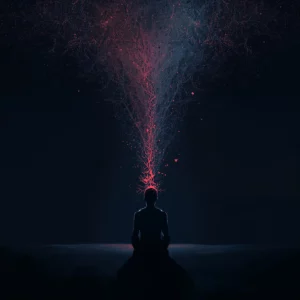
Why Breakups Hurt So Much (Science of Heartbreak & Healing)
Let’s examine breakups in: Biology of love & loss, Attachment styles, Rejection psychology, Closure, Rumination, Grief
Tap here to read more →Why emotions resurface after you feel “better”
One of the most bewildering parts of the stages of grief after a breakup is the resurgence of emotions you thought you’d already conquered. A week of acceptance can give way to a sudden storm of anger or longing. This isn’t regression—it’s the natural rhythm of healing.
Our brains hold on to attachment memories, and when something stirs them—a smell, a song, a random dream—our grief reactivates. The dual-process model explains this too: we swing between looking backward and moving forward. It’s like rehab for the heart—you stretch, you strain, you rest, and sometimes you go back over old ground to grow stronger.
What feels like slipping is actually integrating. Each return is softer, less total, a reminder that you’re learning to carry what once crushed you.

How accepting the non-linear path helps you heal
When we expect grief to be linear, every dip feels like failure. We judge ourselves: Why am I still sad? Shouldn’t I be over this by now? That self-judgment only deepens the pain.
But if we understand that grief is inherently non-linear, we can meet those moments with more compassion. Feeling anger again doesn’t mean you’ve undone your healing; it means you’re still alive to your own story. Having a day of deep sadness doesn’t mean you’ve lost progress; it means your heart is metabolizing loss in its own time.
When you stop expecting the staircase, you stop shaming yourself for not climbing it. Healing looks less like a ladder and more like a tide—rising, falling, carrying you steadily, if unevenly, toward shore.
Healing from a breakup is rarely tidy, but it doesn’t need to be. If the path feels messy, tangled, and unpredictable, that’s because it is—and that’s how it’s supposed to be. The chaos is not a flaw in your process. It is the process. And slowly, through that rhythm, you find your way back to yourself.
FAQ
Q1. Why don’t the stages of grief after a breakup happen in order?
The stages of grief were never meant to be followed step by step. Research shows emotions after a breakup often overlap, repeat, or appear out of sequence. Healing is unique to each person, which is why your process may look different from the ‘five stages’ model.
Q2. Is it normal to feel like I’m going backward in my breakup healing?
Yes. Feeling anger or sadness again after some progress doesn’t mean you’re moving backward. Grief is cyclical, and revisiting emotions is part of how the mind and body adapt to loss.
Q3. How long do the stages of grief after a breakup last?
There’s no set timeline. Some people move through intense feelings quickly, while others experience ups and downs for months. The important thing is to allow your own pace without comparing it to others.
Q4. How can I cope when my emotions feel “out of order”?
Accepting that grief doesn’t follow a straight line helps reduce self-blame. Instead of expecting a fixed sequence, focus on self-care, support from friends or therapy, and recognizing that your emotional shifts are part of natural healing.
Scientific Sources
-
George A. Bonanno (2009): The Other Side of Sadness: What the New Science of Bereavement Tells Us About Life After Loss
Key Finding: Bonanno’s research shows that grief does not typically unfold in linear stages. Instead, people follow multiple trajectories, with resilience being a common outcome.
Why Relevant: Challenges the rigid ‘five stages’ model and explains why breakup grief feels out of order.
https://www.ncbi.nlm.nih.gov/pmc/articles/PMC8675126/ -
Margaret S. Stroebe & Henk Schut (1999): The Dual Process Model of Coping with Bereavement
Key Finding: Grief involves oscillation between loss-oriented emotions and restoration-oriented coping. This back-and-forth process better reflects real experiences than sequential stages.
Why Relevant: Explains why breakup grief feels cyclical and inconsistent rather than stage-based.
https://www.ncbi.nlm.nih.gov/pmc/articles/PMC5375020/ -
Elisabeth Kübler-Ross (commentary by Kenneth J. Doka) (1974): Questions and Answers on Death and Dying
Key Finding: Kübler-Ross clarified that her stages were never meant to be sequential; many people experience them in different orders or simultaneously.
Why Relevant: Directly addresses misconceptions about the five stages of grief, showing why breakup recovery does not follow a strict sequence.
https://en.wikipedia.org/wiki/Five_stages_of_grief
- Breakup Grief vs Sadness: The Powerful Truth You Need to Know
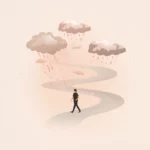
- Breakup Grief Stages: Why You Can’t Skip One (and Why That’s Okay)
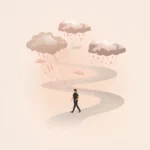
- Breakup Grief Timeline: How Long It Really Lasts and When Healing Begins
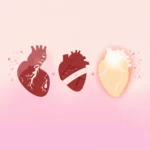
- Why the Stages of Grief After a Breakup Don’t Go in Order (and What It Really Means)

- Acceptance After a Breakup: Why It’s Not Peace but Powerful Progress

- Breakup Depression: Why It Feels Like You’ll Never Be Okay
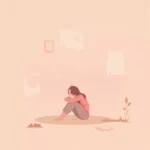
- The Bargaining Stage of a Breakup: Escaping the ‘What If I Text Them?’ Trap

- Breakup Anger: The Untold Truth About the Rage Phase and How to Heal

- Denial After a Breakup: Why Numbness Is Normal (and Necessary)


Leave a Reply